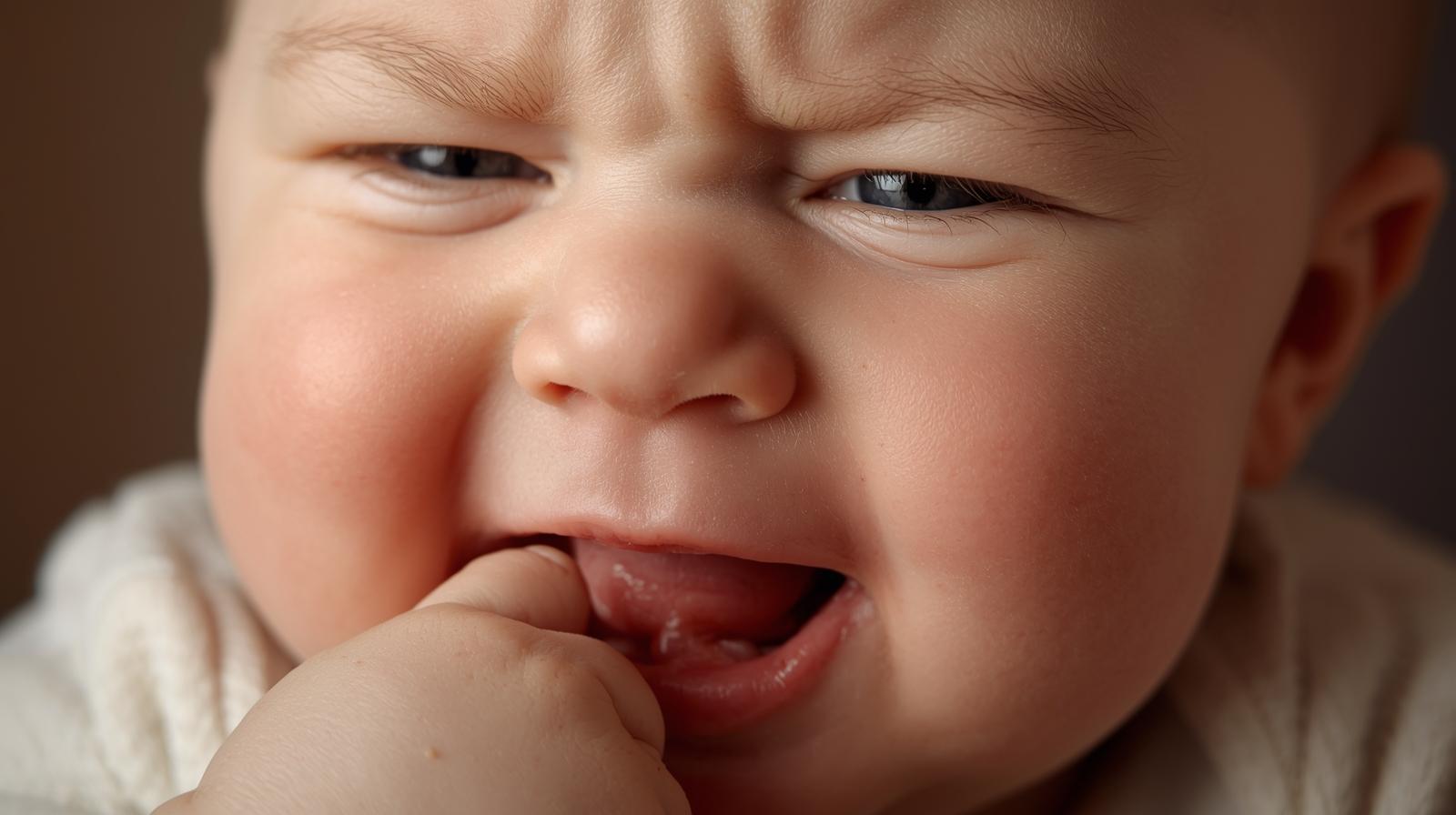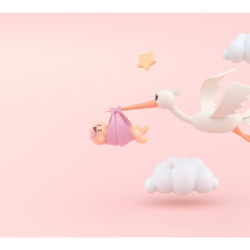Teething is a pivotal period in your child’s development, marking both a stage of growth and a time of significant discomfort for the little one. This phase, often dreaded by parents, is characterised by various symptoms that make baby particularly uncomfortable and even irritated. The appearance of the first teeth is a natural process, but it is not a smooth one.
What is teething in babies?
Teething in babies is an inevitable stage in their development. It marks the gradual eruption of milk teeth, generally between 4 and 24 months of age. For parents, this is often a stressful time, as their little one suddenly becomes more grumpy, sleeps poorly and seems to suffer for no apparent reason. Yet these changes are often linked to the imminent arrival of a tooth.
During this period, the baby’s gums become sensitive, swollen and painful, which can lead to crying, irritability, trouble sleeping, even a low-grade fever and loss of appetite. This natural phenomenon, although benign, is nonetheless difficult for the whole family.
At what age does teething start?
Baby’s first tooth generally appears around 6ᵉmonths, but this can vary. Some infants start as early as 3 or 4 months, others only at 1 year. On average, teeth come out in this order:
- Lower central incisors
- Upper central incisors
- Lateral incisors
- First molars
- Canines
- Second molars
By the age of 3, most children have 20 milk teeth.
What are the symptoms of teething in babies?
Each child is unique, but there are certain signs that are often recurrent and are markers of teething, enabling parents to spot this critical period:
- Excessive salivation (baby drools a lot)
- Red, swollen gums
- Frequent mouthing of objects or fingers
- Sudden irritability, crying for no reason
- Mood changes: grumpy, constant need to be held
- Mild fever, sometimes associated with diarrhoea
- Frequent waking up at night
These symptoms generally last for a few days before and after the tooth erupts.
Why is teething so painful for baby?
When teeth break through the gums, they create pressure and local inflammation. The gum tissue is fragile, making the area particularly sensitive. Babies don’t understand what they’re feeling and express their discomfort by crying or screaming. He may also refuse to suckle, which worries parents, even if it’s temporary.
Should you be worried about teething?
Generally speaking, no. It’s a natural stage. However, if your baby develops a high fever, persistent diarrhoea, vomiting or a prolonged refusal to eat, it’s best to consult a health professional. It could be another problem masked by teething.
Conclusion
Teething is an unavoidable experience for babies, and one that can be difficult for both them and their parents. A better understanding of teething means better support for your child at this stage. Natural and homeopathic solutions can help relieve the pain, as can teething rings, gum massage and simple everyday gestures.





